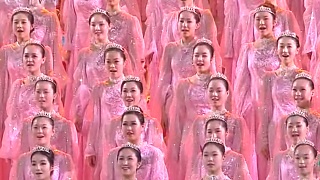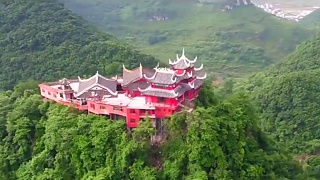Season's Greetings to all our visitors, from BeijingBuzzz, 2020 / 2021 :)
A fantastic flash mob surprises and catches the hearts of all in a BeiJing mall (China World Mall).
Love music? Don't miss this great film (turn up the volume; high quality audio) ...
[640],shadow=true,start=9,stop=一群喜好音樂的志願者在北京國貿的美食街快閃表演了美麗動人的歌曲,包括 "月亮代表我的心", "彎彎的月亮", "甜蜜蜜", "讓我們蕩起雙槳", "茉莉花", "站在高崗上" 以及 "高山青"。我們帶給了現場群眾意外的驚喜,也希望可以跟全世界的朋友分享這份喜悅。
A heart-warming surprise performance of popular traditional Chinese songs at the food court of the China World Trade Center, GuoMao, central-east Beijing. By artists from Taiwan and the China World Trade Center Chorus, plus many passers by.
The 7 songs : "The Moon Represents My Heart" (Yue Liang Dai Biao Wo De Xin), "The Crescent Moon" (Wan Wan De Yue Liang), "Oh, How Sweet" (Tian Mi Mi), "Let's Row the Paddles" (Rang Wo Men Dang Qi Shuang Jiang), "Jasmine Flower" (Mo Li Hua), "Standing on the Hilltop" (Zhan Zai Gao Gang Shang), "The Mountain is Green" (Gao Shan Qing).
This follows a similar event at Taipei 101 in Taiwan, back in the summer.
Bravo to everyone involved !
"Strangers become friends" - we need more of this ...
Peace ...
Love ...
See you all in 2021 .....
Beijing, the capital city of China, is a vibrant metropolis steeped in history, culture, and modernity. Here's a brief overview of what you can expect as a tourist in Beijing:
Historical Landmarks:
The Great Wall of China: One of the most iconic structures in the world, the Great Wall is easily accessible from Beijing. Mutianyu and Badaling sections are popular among tourists.
Forbidden City (Palace Museum): A UNESCO World Heritage Site, this vast imperial palace complex was home to Chinese emperors for over 500 years. It houses numerous halls, courtyards, and historical artifacts.
Temple of Heaven: A masterpiece of Chinese architecture, this ancient temple complex served as a place of worship for emperors to pray for good harvests.
Summer Palace: A stunning ensemble of lakes, gardens, and palaces, the Summer Palace served as a retreat for emperors during the Qing dynasty.
Tiananmen Square: One of the largest city squares in the world, Tiananmen Square is flanked by important landmarks such as the Monument to the People's Heroes, the Great Hall of the People, and the Mausoleum of Mao Zedong.
Cultural Sites:
Beijing Hutongs: Explore the narrow alleyways and traditional courtyard residences of Beijing's historic neighborhoods. You can take a rickshaw tour or simply wander around on foot.
Beijing Opera: Experience traditional Chinese opera performances at venues like the Liyuan Theater or the Chang'an Grand Theatre.
798 Art District: A hub of contemporary art and culture, this former industrial area is now home to numerous galleries, studios, and cafes.
Modern Attractions:
Olympic Park: Visit iconic structures such as the Bird's Nest (National Stadium) and the Water Cube (National Aquatics Center) from the 2008 Beijing Olympics.
CBD (Central Business District): Marvel at the futuristic skyline of Beijing's modern business district, which includes landmarks like the CCTV Headquarters and the China World Trade Center Tower III.
Culinary Delights:
Peking Duck: Indulge in Beijing's most famous dish, crispy roast duck served with pancakes, scallions, and hoisin sauce.
Street Food: Explore the city's vibrant street food scene and sample local delicacies like jianbing (savory crepes), lamb skewers, and dumplings.
Practical Tips:
Transportation: Beijing has an extensive public transportation system, including the subway, buses, and taxis. However, traffic can be heavy, so plan your travels accordingly.
Language: While English is not widely spoken, especially outside tourist areas, many signs and transportation announcements are in English. It's helpful to carry a translation app or a phrasebook.
Weather: Beijing experiences four distinct seasons, with hot summers and cold winters. The best times to visit are spring (April to June) and autumn (September to October) when the weather is mild and comfortable.
Etiquette: Respect local customs and traditions, such as removing your shoes before entering someone's home and using both hands to pass or receive items.
Beijing offers a rich tapestry of experiences for tourists, blending ancient heritage with modern innovations. Whether you're fascinated by history, culture, or culinary delights, there's something for everyone in this dynamic city.
 Surprise concert in BeiJing 北京 :) (: Season’s greetings 2020 / 2021 …
Surprise concert in BeiJing 北京 :) (: Season’s greetings 2020 / 2021 …




















